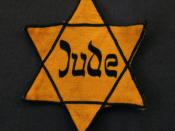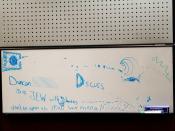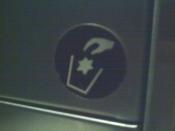In 'Babi Yar', Yevgeny Yevtushenko pays tribute to the victims of the Holocaust in general, and particularly to those who perished in his homeland of Russia. Although he himself is not a Jew, Yevtushenko writes this poem with hopes of
bettering his country's society by deprecating anti - Semitism. In achieving this, Yevtushenko uses various literary devices, including allusions that appeal to non - Jews as well as Jews, imagery, and his voice and diction as a whole.
In his use of the first person, Yevtushenko is able to drive the horrific acts against the Jews close to home. He writes, 'Anne Frank, I am she' and 'I am every old man shot down here.' Thus, the Holocaust is portrayed as a first hand, personal
experience, which deepens the meaning of his message. Also, he uses the first person in historical allusions, saying 'I roam in Egypt' and 'I am Dreyfus', hence taking the reader back to previous historical injustices towards the Jews.
These allusions, in reference to Egypt and Dreyfus, are meant to improve the world's awareness of anti - Semitism. In Egypt, Jews were viciously mistreated and held captive against their will, as slaves. And Dreyfus, a Frenchman, was
incarcerated for a crime he obviously did not commit, simply because of his religion, Judaism. This seems to be the justification for his saying, 'Fear is my ground - as old as the Jewish people', since he, who actually represents the Jew, has constant
known fear all throughout history. It is the ground on which he has walked on ever since his creation. Additionally, if these allusion do not evoke sadness and repugnance in his non - Jewish readers, Yevtushenko insightfully makes use of the third an
most potent parallel for injustice: The crucifixion of Jesus on the cross.


